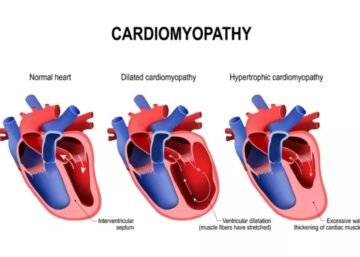
Decreasing your risk of cardiovascular disease is essential for maintaining good heart health. Here are eight steps to help you reduce your risk:
Healthy Diet:
Consume a well-balanced diet rich in fruits, vegetables, whole grains, lean proteins, and healthy fats. Limit your intake of saturated and trans fats, salt, and added sugars.Reduce your portion sizes to manage your calorie intake and maintain a healthy weight.
Regular Exercise:
Aim for at least 150 minutes of moderate-intensity aerobic exercise or 75 minutes of vigorous-intensity exercise per week. This can be divided into smaller sessions. Incorporate strength training exercises at least twice a week.
Maintain a Healthy Weight:
Maintain a body mass index (BMI) within the healthy range for your age and height. Losing even a small amount of weight can have a positive impact on your heart health.
Quit Smoking:
If you smoke, quitting is one of the most significant steps you can take to reduce your risk of heart disease. Seek support from healthcare professionals or smoking cessation programs.
Limit Alcohol Intake:
If you choose to drink, do so in moderation. This typically means up to one drink per day for women and up to two drinks per day for men.Excessive alcohol consumption can increase your risk of heart problems.
Manage Stress:
Chronic stress can contribute to heart disease. Practice stress-reduction techniques such as meditation, deep breathing, yoga, or hobbies you enjoy. Ensure you get adequate sleep, as poor sleep can contribute to stress and heart health issues.
Control Blood Pressure:
Regularly monitor your blood pressure, and if it’s high, work with your healthcare provider to manage it through lifestyle changes or medication. Reducing sodium intake and increasing potassium-rich foods can help regulate blood pressure.
Manage Cholesterol Levels:
Keep an eye on your cholesterol levels, especially your LDL (“bad”) cholesterol. High levels can lead to plaque buildup in your arteries. A healthy diet, regular exercise, and sometimes medication can help manage cholesterol levels.
Remember that genetics also play a role in your risk of cardiovascular disease, so it’s important to discuss your family history and overall heart health with your healthcare provider. They can help tailor a plan specific to your needs and provide regular check-ups to monitor your progress






